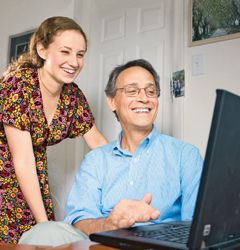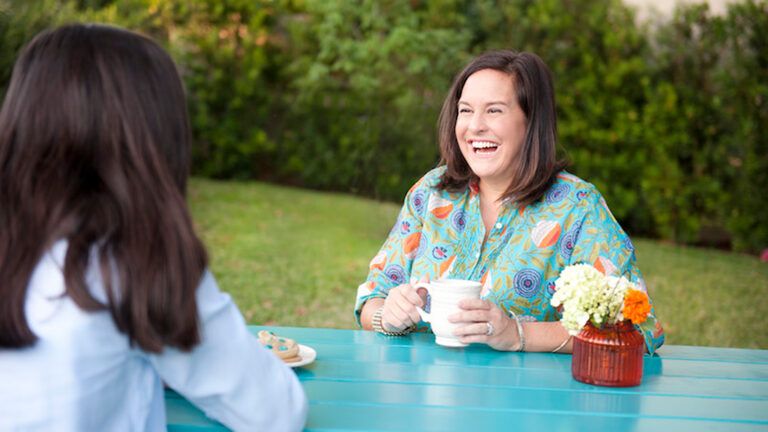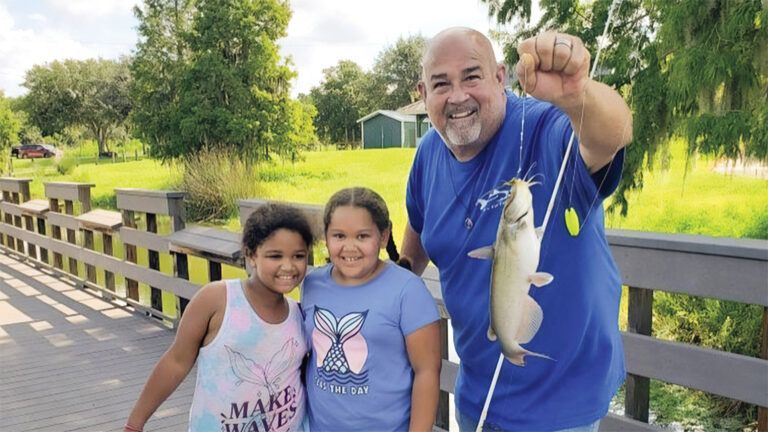There was a room in my house I’d been avoiding.
My upstairs office, where I took off my husband-and-father hat and put on that of cofounder of a high-tech start-up.
For the past several months, since my wife, Carole, had died of ovarian cancer, I hadn’t been able to bring myself to do much work. But that winter morning, watching our teenage daughters, Lauren and Julia, set off for school, I noticed them laughing as they walked to the bus stop. I felt a rush of relief and gratitude that their grief was healing. Maybe it’s time for me to get back to living my life too, I thought.
I turned and headed upstairs. My office wasn’t the neatest. The business was fast paced, and I always had printouts and reports scattered all over.
One thing kept me from chaos: the whiteboard on the wall behind my desk. It was like a giant memo pad, filled with notes to myself, ideas, lists of things to do. It was empty now.
But I remembered how it looked in Carole’s last weeks, when I was struggling to be husband, dad, chauffeur, tutor, caregiver. The notes had been replaced by shorthand phrases, each a task that needed my attention in order to keep our family functioning.
I sat at my desk and exhaled. Last summer should’ve been a happy time. Carole was sick, in her fourth year of battling cancer, but experimental drug treatments had seemed to stabilize her. My business was doing well enough that I could cut back on work and look after her and our daughters.
Mornings I fixed breakfast for the girls and got them off to school. Afternoons I spent with Carole, usually at the hospital for treatments that lasted till evening. Nights I fixed dinner and helped Julia and Lauren with homework. I tried to maintain a sense of normalcy.
We were all looking forward to Julia’s Bat Mitzvah. It was scheduled for October, when she turned 13, the day, according to the Jewish faith, on which she would take her place in our spiritual community as an adult. She would read a passage from the Torah and then deliver a sermon on its meaning.
We had planned a big party afterward for family and friends. A sit-down dinner, each table with a gorgeous floral arrangement. A DJ to get everyone dancing, starting with the hora, a traditional Jewish dance.
Most of the preparation for Julia’s big day fell to me, but that was okay. The important thing was that Carole would be at temple and at the party, that our family would celebrate together.
Then one day in August while Carole was getting treatment, her oncologist took me aside. “I know you have this event coming up in October,” he said gently. “If I were you, I’d move it up.” The cancer had spread. Carole had just weeks to live. I was so devastated I couldn’t respond. It was taking all the energy I could muster to keep our family on an even keel. How would I manage now?
I had to talk to our rabbi and reschedule the Bat Mitzvah. Step up Julia’s Torah lessons so she’d be prepared on her big day. Renegotiate contracts with the caterer, the florist, the DJ. Take care of Carole. Deal with the doctors. Alert all our family and friends. And somehow prepare our girls for what was to come.
It’s is all up to you now, I told myself. You’ve got to keep it together. But I couldn’t, not always. I didn’t want Carole or the kids to see me crack. Sometimes I slipped out the door, drove down the street, parked and let the tears flow. God, I don’t know how I’ll get through this.
Maybe a week after the oncologist’s bleak news, out of desperation I called one of Carole’s aunts. “Can you come over afternoons and watch the kids while I’m with Carole at the hospital?”
“Sure,” she said. “Anything else?”
I was so relieved, I almost started weeping. “That would be plenty,” I said.
Carole’s aunt must’ve burned up the phone lines afterward, because that night my cousin Bob called. “I hear you have to move up the date of Julia’s Bat Mitzvah,” he said. “Write out what needs to be done and we’ll take care of it.” I could have hugged him. I ticked off every item on the whiteboard. “I’ll get the word out,” Bob promised.
The next day help rolled in. A friend e-mailed that he’d deal with the caterer. A neighbor said he’d contact the florist. A colleague volunteered to work things out with the DJ. That night Carole and I came home from the hospital to find a casserole on the stoop with a note from a neighbor: Thought you might like some dinner.
On the day of her Bat Mitzvah, Julia chanted her Torah portion beautifully, then spoke in her sermon of love, of family, of helping hands, of trust. Her eyes fell on Carole, seated in her wheelchair between Lauren and me.
“Today I take my place in a special community,” she said. I looked around the synagogue, at all our family and friends. Why had I thought it was up to me to take care of everything? I’d never been in this alone. I had only to ask for help, and it was there.
Carole died six days later. For a long time the girls and I were shrouded in grief. Then came that winter morning I returned to my office and looked up at my whiteboard. I thought of all the notes I’d written on it in Carole’s last weeks.
What I really wanted to do, I decided, was to make our family’s struggles count for something. I wanted to start a free online service that would help other families overwhelmed by a crisis. In a flash a name came to me, something Julia had talked about in her Bat Mitzvah sermon: lots of helping hands.
I gave up my responsibilities in the start-up to one of my partners, and within a year I launched a website: lotsahelpinghands.com. It provides a simple way for overstressed families to reach out to relatives, friends and neighbors for help in getting through their day-to-day lives.
Each family sets up their own calendar that shows when and what kind of help is needed (like meals, rides, childcare) and lets volunteers sign up for specific tasks. It’s kind of a digital version of my whiteboard, but a lot better organized.
We have been online for five years now and helped more than 25,000 families worldwide through tough times that no one should have to face alone. And as I was so powerfully reminded the day of my younger daughter’s Bat Mitzvah, none of us does.




